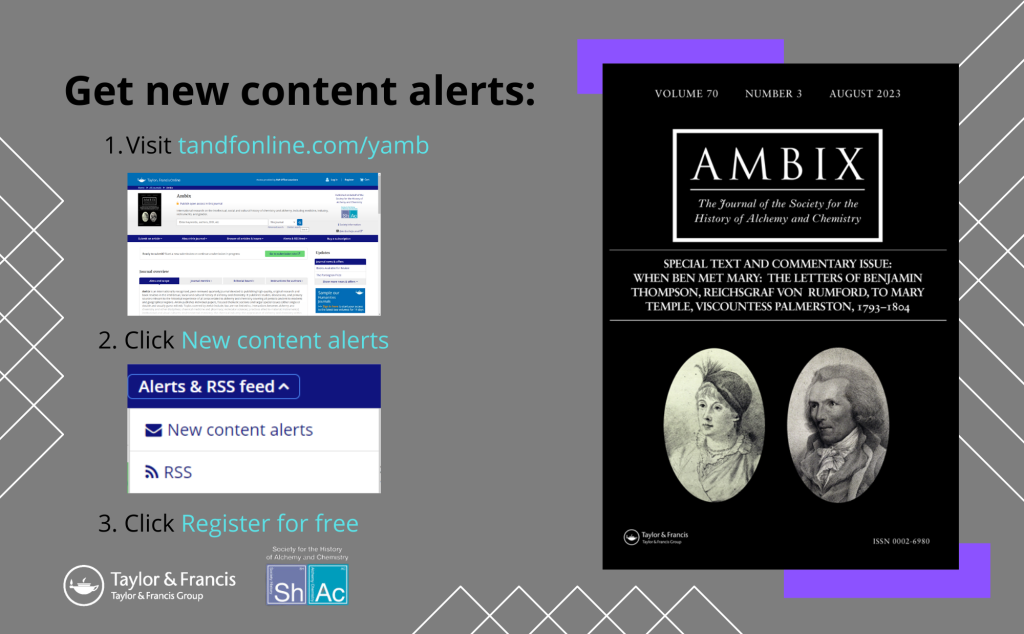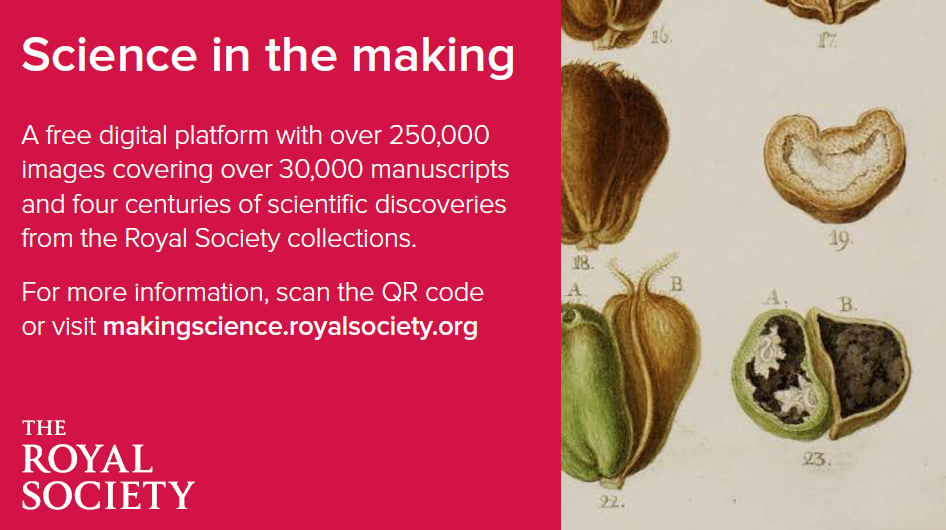There are several events and publications taking place in the new few weeks, including a SHAC seminar and the Autumn SHAC meeting:
1. Next SHAC on-line seminar, Thursday, 9 November 2023, 5pm GMT
The next on-line seminar of the Society for the History of Alchemy and Chemistry will be given by Dr Adrian Wilson (University of Leeds) who will present:
Some discontinuities in eighteenth-century instrumentation
The pneumatic trough and the Fahrenheit thermometer are well recognised as eighteenth-century inventions of lasting importance. They become even more interesting, I shall propose, if we attend to certain discontinuities in the processes by which they came into the world. In respect of the thermometer, this exploration will draw on recent papers by Powers (2014) and McCaskey (2020); the pneumatic trough seems still to await correspondingly close investigation, but there are ample indications that such investigation would be worthwhile. I shall conclude by raising the question as to why such discontinuities have tended to be overlooked.
This will be live on Thursday, 9 November 2023, beginning at 5.00pm GMT (6.00pm CET, 12noon ET, 9.00am PT). The format will be a talk of 20-30 minutes, followed by a moderated discussion of half an hour.
As with recent seminars the Zoom link can be freely accessed by anyone, member of SHAC or not, by booking through the following TicketSource link: https://www.ticketsource.co.uk/society-for-the-history-of-alchemy-and-chemistry/t-krqpqkx
The seminar will be also accessible live on YouTube at https://www.youtube.com/watch?v=_BmDXfvdCCA
2. Publication of On Alums and Salts by Pseudo-Rāzī, translated, edited and introduced by Gabriele Ferrario
The Society for the History of Alchemy and Chemistry (SHAC) is delighted to announce the forthcoming publication of the second volume of Sources, the supplement to the Society’s quarterly journal Ambix published by Taylor and Francis.
This volume will publish On Alums and Salts by Pseudo-Rāzī, translated, edited and introduced by Gabriele Ferrario. This Arabic alchemical treatise, produced in 12th-century Al-Andalus, gained wide fame in its Latin translations and is also represented by a very peculiar Hebrew manuscript witness. The Sources edition will include the Arabic and Hebrew texts with translations into English. On Alums and Salts tells the story of the active acquisition of chemical knowledge, of lexical creativity and ingenuity, and of scientific engagements that seamlessly crossed chronological, linguistic, cultural and religious boundaries.
Gabriele Ferrario is assistant professor of the history of science at the University of Bologna. He received his PhD from the University of Venice in 2007 and subsequently worked in London, Philadelphia, Cambridge and Baltimore.
Those who are members of SHAC at the end of 2023 will receive a copy of Sources as part of their membership (SHAC can be joined at https://www.ambix.org/membership/subscription-2/). It will also be published on-line open access available via the Taylor and Francis website.
SHAC chair, Professor Frank James, commented that ‘I am delighted that SHAC is publishing this influential text in its Sources series which is a major contribution to studying medieval alchemy.’
3. Save the Date – SHAC Autumn Meeting ‘Alchemy and Chemistry in the Long Eighteenth Century’at University College London, 25 November 2023, starting at 10 am. Speakers include Mieke Adriaens and Pieter Beck, Malika Basu, Armel Cornu, Hasok Chang, John Christie, Matthew Eddy, Hjalmar Fors, Anna Simmons and Nicholas Zumbulyadis. Booking details to follow soon.
4. SHAC AGM Minutes: Minutes of the SHAC AGM held on Zoom on 3 May 2023 are available at: https://www.ambix.org/meeting-minutes/
5. Call for Abstracts – 9th EuChemS Chemistry Congress, Dublin, 7-11 July 2024. SHAC Members may be interested in the Call for abstracts for the 9th EuChemS chemistry congress in Dublin: Call for Abstracts – EuChemS 2024 . Submissions on history, education, cultural heritage and ethics in chemistry are warmly welcomed. Call for abstracts closes on Friday 8 December 2023.
6. Ambix New Content Alerts. Members are reminded that they can sign up for new content alerts for Ambix. Details in flyer below. Articles are available online in advance of the issue’s publication. You can read Armel Cornu’s Partington Prize winning essay, ‘Senses and Utility in the New Chemistry’ from the November 2023 Ambix now at: https://www.tandfonline.com/doi/full/10.1080/00026980.2023.2265681?src=


